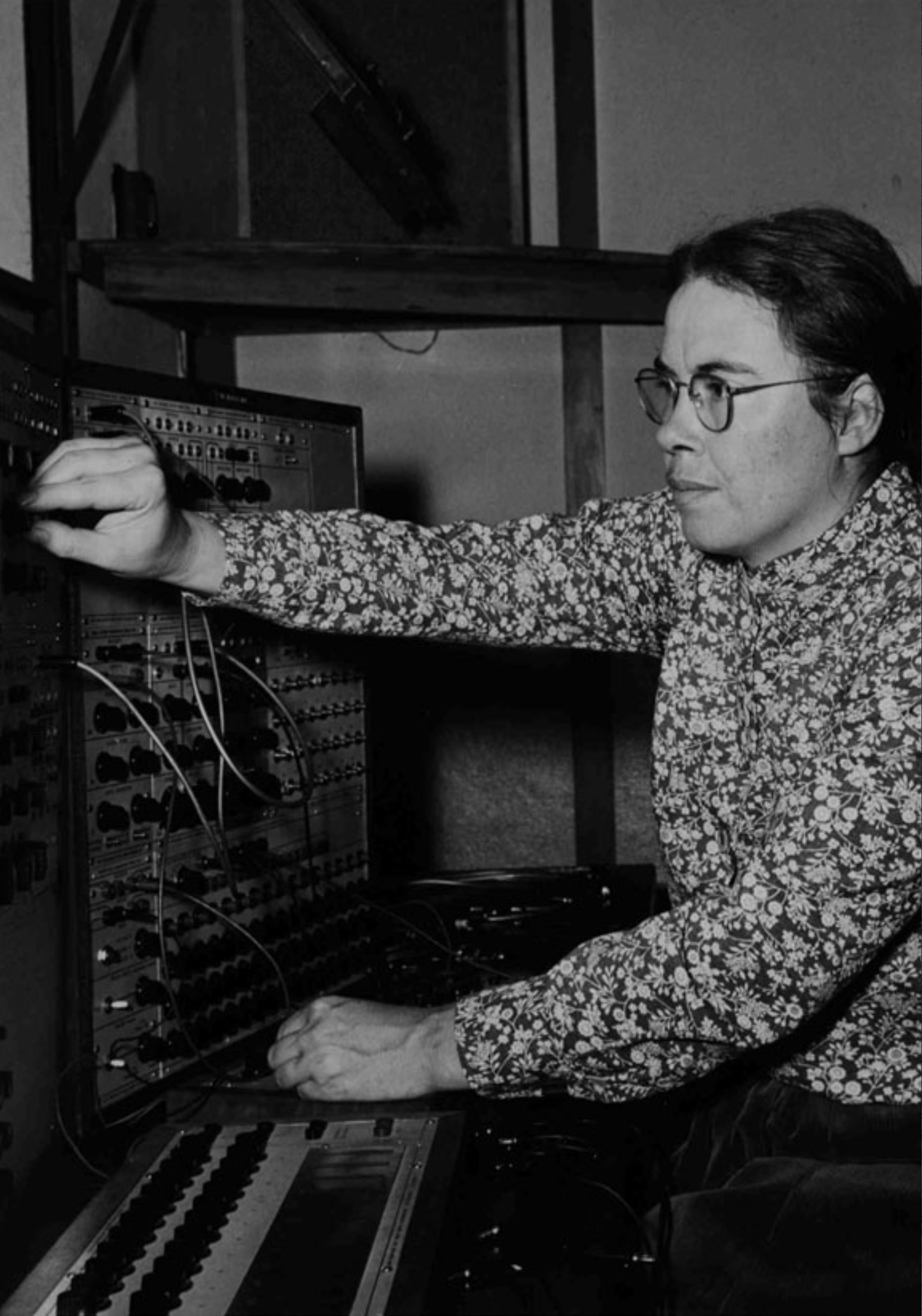Difference between revisions of "Pauline Oliveros (Q31733)"
From CanonBase
(Created claim: date of birth (P30): 30 May 1932) | (Removed claim: Instance of (P1): Women and technology (Theme) (Q31714), #quickstatements; #temporary_batch_1694073319027) | ||||||||||||||
| (6 intermediate revisions by 2 users not shown) | |||||||||||||||
| Property / Date of death | |||||||||||||||
| + | 25 November 2016
| ||||||||||||||
| Property / Date of death: 25 November 2016 / rank | |||||||||||||||
| + | Normal rank | ||||||||||||||
| Property / country of citizenship | |||||||||||||||
| + | |||||||||||||||
| Property / country of citizenship: USA / rank | |||||||||||||||
| + | Normal rank | ||||||||||||||
| Property / Internal image | |||||||||||||||
| + | |||||||||||||||
| Property / Internal image: Pauline_Oliveros.jpg / rank | |||||||||||||||
| + | Normal rank | ||||||||||||||
| Property / context | |||||||||||||||
| + | Composer and accordionist Pauline Oliveros (30 May 1932 - November 24, 2016) began exploring tape and electronic music techniques in the late 50s. A founding member and central figure of the influential San Francisco Tape Music Centre with Ramon Sender and Morton Subotnick, her compositions introduced meditative and ritualistic practices while exploring deep, existential ideas. Gender inequality would be a theme that she addressed tenaciously. An essay she wrote for the NY Times in 1970 started with a provocative question – “Why have there been no ‘great’ women composers?” Lifting the veil on gender bias and societal expectations of domestic compliance, she worked as she says “To create an atmosphere of opening for all to be heard, with the understanding that listening is healing.” (English) | ||||||||||||||
| Property / context: Composer and accordionist Pauline Oliveros (30 May 1932 - November 24, 2016) began exploring tape and electronic music techniques in the late 50s. A founding member and central figure of the influential San Francisco Tape Music Centre with Ramon Sender and Morton Subotnick, her compositions introduced meditative and ritualistic practices while exploring deep, existential ideas. Gender inequality would be a theme that she addressed tenaciously. An essay she wrote for the NY Times in 1970 started with a provocative question – “Why have there been no ‘great’ women composers?” Lifting the veil on gender bias and societal expectations of domestic compliance, she worked as she says “To create an atmosphere of opening for all to be heard, with the understanding that listening is healing.” (English) / rank | |||||||||||||||
| + | Normal rank | ||||||||||||||
| Property / context: Composer and accordionist Pauline Oliveros (30 May 1932 - November 24, 2016) began exploring tape and electronic music techniques in the late 50s. A founding member and central figure of the influential San Francisco Tape Music Centre with Ramon Sender and Morton Subotnick, her compositions introduced meditative and ritualistic practices while exploring deep, existential ideas. Gender inequality would be a theme that she addressed tenaciously. An essay she wrote for the NY Times in 1970 started with a provocative question – “Why have there been no ‘great’ women composers?” Lifting the veil on gender bias and societal expectations of domestic compliance, she worked as she says “To create an atmosphere of opening for all to be heard, with the understanding that listening is healing.” (English) / qualifier | |||||||||||||||
| + | |||||||||||||||
| Property / is used in theme | |||||||||||||||
| + | |||||||||||||||
| Property / is used in theme: Women and technology (Theme) / rank | |||||||||||||||
| + | Normal rank | ||||||||||||||
Latest revision as of 07:55, 7 September 2023
pioneer of electronic music
| Language | Label | Description | Also known as |
|---|---|---|---|
| English | Pauline Oliveros | pioneer of electronic music |
Statements
30 May 1932
0 references
25 November 2016
0 references
Composer and accordionist Pauline Oliveros (30 May 1932 - November 24, 2016) began exploring tape and electronic music techniques in the late 50s. A founding member and central figure of the influential San Francisco Tape Music Centre with Ramon Sender and Morton Subotnick, her compositions introduced meditative and ritualistic practices while exploring deep, existential ideas. Gender inequality would be a theme that she addressed tenaciously. An essay she wrote for the NY Times in 1970 started with a provocative question – “Why have there been no ‘great’ women composers?” Lifting the veil on gender bias and societal expectations of domestic compliance, she worked as she says “To create an atmosphere of opening for all to be heard, with the understanding that listening is healing.” (English)
0 references
